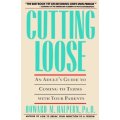
 Dear Andrew,
Dear Andrew,
My younger sister is one of my best friends. About a year-and-a-half ago she met this guy through work. He had a girlfriend at the time, and my sister had just gotten out of a serious relationship. He and his girlfriend eventually broke up (after a year of dating).
Several months after he’d become single, my sister and him became more than friends. She made it sound as if they were dating, and after six months I assumed that they were pretty serious (based on the amount of time they were spending together and things that my sister had said).
One day, out of the blue, she called me upset and said that she was fed up with the situation. That he continuously insisted that they were just ‘best friends’ despite the fact that their relationship had taken on physical aspects. Since then, he’s done things like date other women without telling her and has had multiple discussions with her about how they are ‘just friends.’ Despite his claim, they spend most nights together and hang out on a near-constant basis (last Sunday they spent all day together at a driving range, went to his apartment to make dinner, then she stayed over).
As time passes, I’m finding it more of a struggle to be nice to this guy. Initially, I got along well with him because he’s personable and funny, but I’m obviously infuriated by the way he treats my sister. He’s essentially told her before (when she complained about the situation) that she allows him to treat her that way, and that he never forces her to spend the night at his place or vice-versa. To me the situation seems relatively cut and dry – just because somebody is vulnerable doesn’t mean it’s okay to take advantage of them (just like it’s still unethical to steal a car even if somebody has left the door unlocked and the keys in the ignition).
I obviously wish that my sister would stand up for herself, tell this guy that she’s not interested and focus her vast amount of energy on someone that appreciates her. But regardless, to me, this guy is a jerk.
When my sister has spoken to me about it in the past, all I’ve really said so far is that she doesn’t deserve to be treated that way and that she should stand up for herself. I may have also asked once or twice if she would treat someone that she considered a close friend the way he’s treated her. I’ve tried to refrain from directly criticizing her or him, because it seems like doing so would just make things worse. Her roommate has been very vocal about not liking the guy and this has practically ended their friendship. They barely speak anymore. What stinks is that when it comes down to it, I suspect that she likes this guy enough to choose him over any of her existing relationships (with friends/family).
Since I’m angry with him and feel that I can’t be nice, I mostly just avoid speaking to him. My sister has noticed, and, I think understands why, though she seems to try to reconcile us by mentioning something positive he’s said about me, or throwing us into situations where we’re forced to interact, etc. Typically this just makes things awkward.
When it comes down to it, she’s stated several times that she’s convinced that he’s eventually going to come around and realize that they’re meant to be together. I’m no love expert, but I’d assume that as long as she lets him treat her poorly he’ll continue to do so. Also, it seems that he’s the sort of person that has no qualms about taking advantage of other people’s vulnerabilities – to me getting into a relationship with such a person would be asking for a lifetime of getting hurt (though maybe I’m just a cynic).
Frankly, I’m sick of hearing my sister say the same things over and over again as if they are shocking revelations whenever she gets fed up and overwhelmed with hurt. Even worse, I’m sick of her speaking about him blissfully, when she’s in the mode of ignoring the crappy situation. Should I be approaching this differently?
Signed, Bossy Older Sister
Dear Bossy,
I agree with you. She should drop this guy and walk away, and she should do it today. She is accepting a half-baked relationship with a guy who openly admits he doesn't mind jerking her around. This is neither a quality guy nor a quality relationship. I also agree that her actions place you are in a difficult situation.
I have given this situation a fair amount of thought, but from the point of view of a parent. What would I do if one of my children is in a serious relationship with someone I find objectionable?
Let's fast forward to a possible scenario where your sister ends up marrying this guy. If it is obvious to the two them that you don't like him, that there is open conflict between you and him, then you are forcing your sister into a situation where she will probably end up having to choose either you or him. The spouse who is openly disliked by the in-laws will be hurt and feel they are under attack. If your sister were to continue to be friendly toward you in that situation, he would take that as her condoning your actions toward him. If she wants her marriage to continue in any sort of harmony, she might indeed be forced to choose him to the exclusion of you. Even after taking that drastic step, there would undoubtedly still be life-long tension within the marriage over the fact that her family doesn't like him. This would be a traumatic ongoing situation for your sister, especially given that you and she have been good friends. All those special occasions that should be fun and joyous (like Christmas, birthdays, etc.) become conflict-ridden hot spots for the two of them.
So, do you simply swallow your objections, say nothing and pretend you like this guy? Absolutely not. I think there is a way you can try to help your sister and yet not risk placing her in that untenable position I just described.
At the core of my philosophy is that at some point younger sisters must be treated as adults who make their own decisions. (The same is true of our children, as I have discussed before in articles like
Best Friends Go to College and
If You Love Them, Set Them Free.) It really is her choice, not yours, with whom she chooses to spend her time.
While you should respect that, you also have an obligation to help her as best you can. You and I are both convinced she is choosing a non-supportive partner if she stays with this guy. Since you know she is headed for trouble, you should try to help her. I would sit her down for a private conversation, something like this:
You: "I want to talk to you about something, and I promise it'll stay just between you and me, okay?"
Her: "Okay..."
She may be wary, maybe even guess what is coming, but your promise should reassure her at least long enough for you to continue.
You: "First of all I'm in your corner, okay? We're friends and I'm going to support you in whatever you choose to do in life. You know I've worried about you and Bob, but I want you to know that if you and he were to end together, even married, I would respect that and be nice to him, okay?"
Her: "Good."
At this point she might launch into some objections about how you have treated him in the past. Just ride this out until it passes. Keep saying things like, "I know, and I'll try not to make you feel caught in the middle anymore."
You: "Having said that, I truly believe you are headed for trouble with him."
Continue on and explain the sorts of behavior you have seen in him, along with the consequences your sister is headed for if she remains in this relationship. There is likely a self-esteem component for her -- she may not feel like she deserves to be treated any better, or that she is unlikely to find someone else if she breaks up with him. You should try to reassure her on this score. Tell her this is a slam-dunk no-brainer that this is not the guy for her. Finish by reassuring her that despite all that, you respect her right to be with him if she wants, and if that is what she chooses then you will be the supportive big sister and be as nice to him as you can. You want her to receive your advice, but also to know that in public she will have your support and respect.

As the icing on the cake, you should take along a copy of
He's Just Not That Into You by Greg Behrendt and Liz Tuccillo. I may sound like a broken record after recommending this book to another reader only a few days ago, but your sister should really read it. Chapter 3 in particular could have been written about her. Here is what Greg has to say about a situation that is almost word for word identical to your sister's:
I looked up "I don't want to be your boyfriend" in the Relationship Dictionary, just to make sure I wasn't mistaken, but I was right. It still means "I don't want to be your boyfriend." Wow. And this is coming from a guy who's spending four or five nights a week with you. That must hurt. Nice to know your not-boyfriend gets to live in your world commitment-free. Not quite sure what you're getting. If you want to give all your time to a guy who's proclaiming he's not your boyfriend, then go ahead. But I'd hope you'd at least go find someone who isn't saying to your face, "I'm just not that into you."
Hopefully this approach will give your sister plenty to think about. I believe it is your best shot at trying to help her without alienating her.
Good luck!
Andrew
If you haven't already done so, don't forget to check out this week's
Ask the Faithful Readers question. I will post my favorite response on Saturday with a link to the winner's blog.
Read More ->>
 Dear Faithful Reader,
Dear Faithful Reader,




















